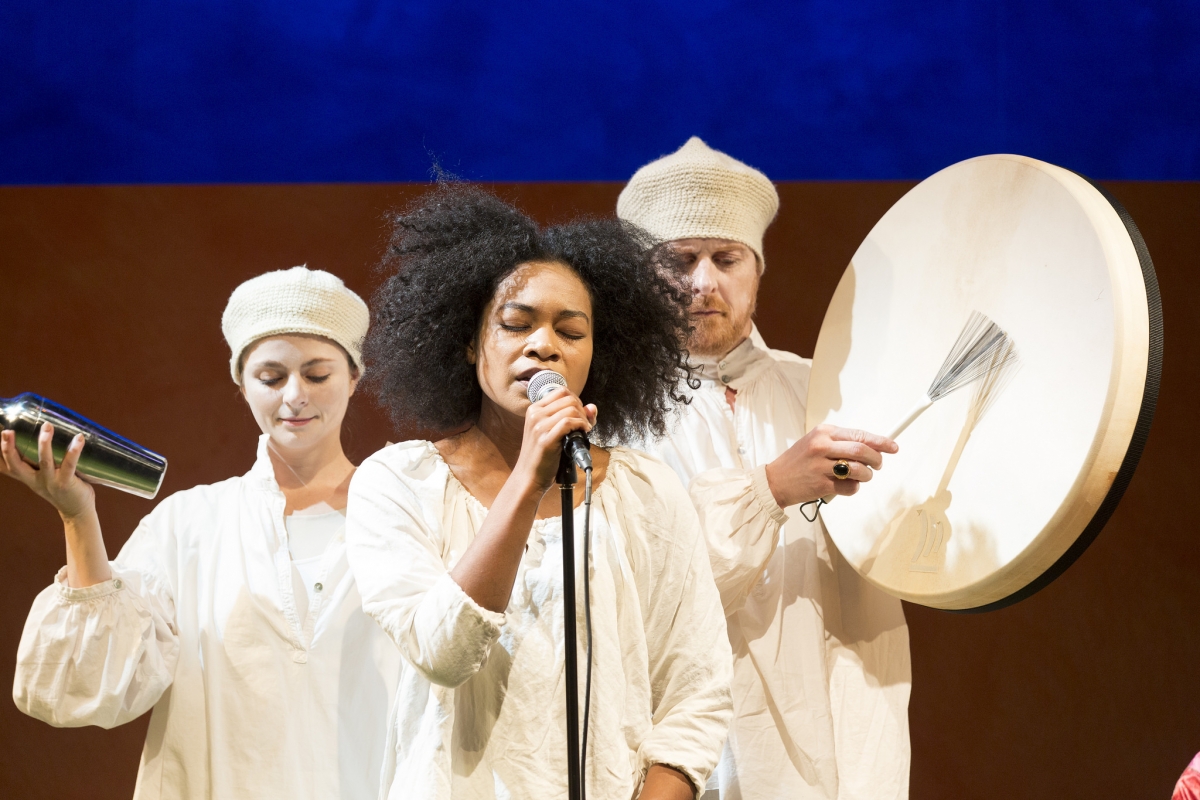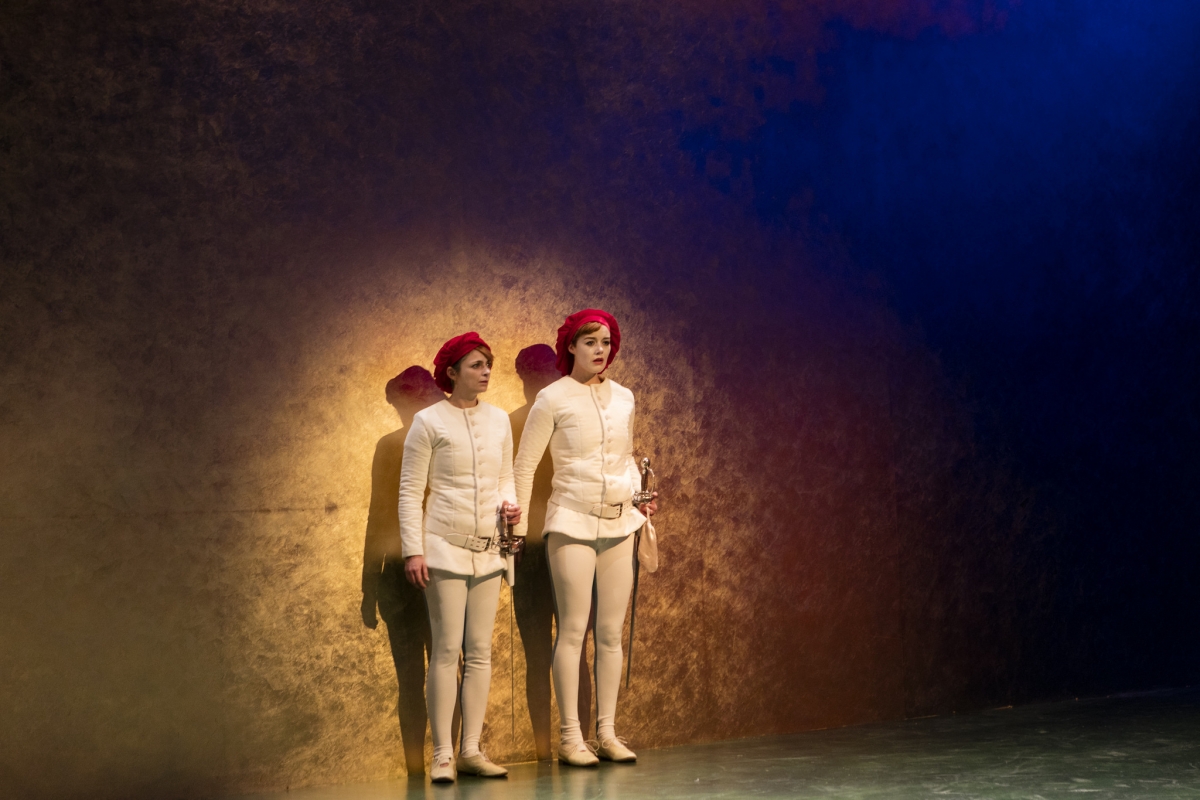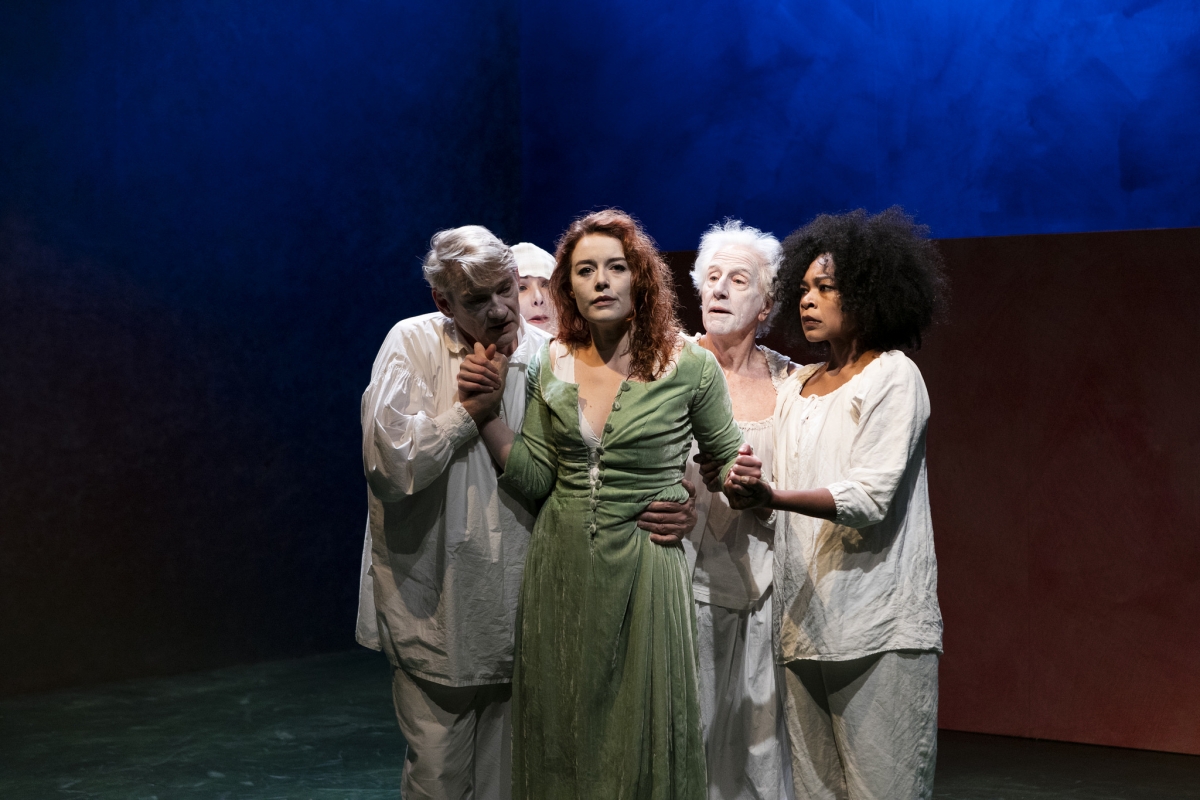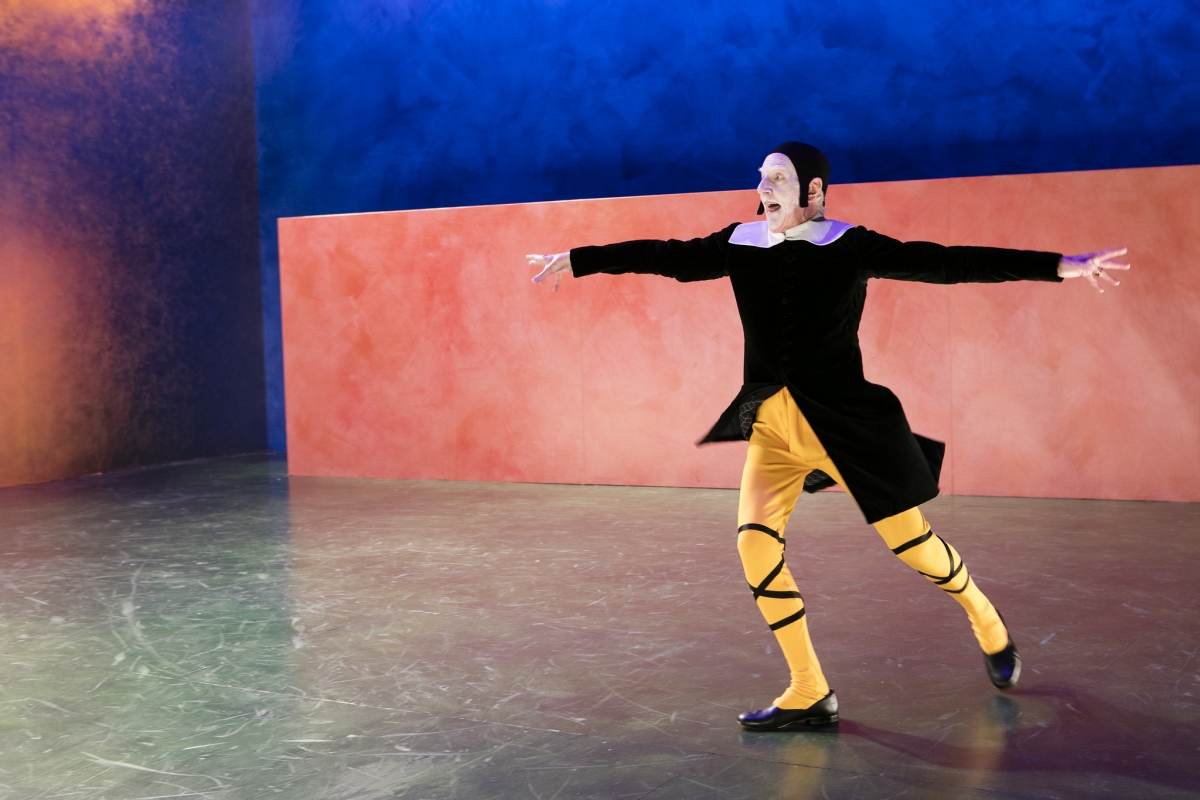★★★★☆ A deliciously staged comedy filled with laughter yet laced with melancholy.
Belvoir St Theatre Upstairs
July 27, 2016
Twelfth Night is considered by many to be one of Shakespeare’s most perfect comedies but it is also one of his darkest, shot through as it is with melancholy, the ache of unrequited love, cruelty and suggestions of madness.
Productions can go any which way, as directors decide where the balance lies between laughter and tears, and just how much to explore the darker elements simmering beneath the surface. When Antony Sher played Malvolio in Bill Alexander’s 1987 Royal Shakespeare Company production, for example, he was left defeated, bedraggled and deranged at the end, driven truly mad by his incarceration: the joke had gone too far.
Directing the play for Belvoir, Eamon Flack doesn’t push the darker elements. Instead he helms a production where delightful comedy is to the fore, though laced with a gentle, touching melancholy.
Believed to have been written around 1601 as an entertainment for the end of the Christmas season, Twelfth Night, or What You Will (to give it its full title), revolves around love, sexual ambiguity and mistaken identity. Set in Illyria where dream seems to merge with reality and people are often not quite what they seem, Viola is washed-up on shore, grief-stricken at having lost her twin brother Sebastian in a shipwreck.

Amber McMahon, Emele Ugavule and Damien Ryan
Disguising herself as a boy called Cesario, she is employed by the Count Orsino and sent to woo Olivia on his behalf. Instead, Olivia falls in love with Cesario, who becomes smitten with Orsino, who finds himself strangely attracted to Cesario. Meanwhile, Sebastian and his friend Antonio arrive in town to further complicate things.
In a comic subplot, Olivia’s carousing relative Sir Toby Belch, his doltish companion Sir Andrew Aguecheek, and Oliva’s maid Maria trick Olivia’s killjoy steward Malvolio into believing that she returns his affections.
In Flack’s production the play is performed almost exactly as written other than to add a few contemporary jokes for the clown Feste so that we are able to laugh at his (now sometimes impenetrable) shtick in the way the Elizabethans would have done. So we have Keith Robinson as Feste telling us that “a funny thing happened on the way to the theatre”, giving us his impression of Anne Hathaway and noting “that was an old Elizabethan land tax joke – not funny then, not funny now.” It’s not overdone and it works brilliantly, allowing us to relate better to Feste and to his role in the play.
Visually the production looks beautiful. Michael Hankin’s set is reminiscent of a Mark Rothko painting with its blocks of bold colour: a glossy green floor, a bright blue back wall suggesting sea and sky, a Mediterranean-looking pink stucco wall, which the actors can sit on and perform behind, and a golden side wall, which shimmers under Nick Schlieper’s lighting.
Stephen Curtis’s witty costumes are Elizabethan-inspired but with all manner of tongue-in-cheek touches from Sir Toby Belch’s big, sagging codpiece to Sir Andrew Aguecheek’s all-too-obvious toupee. Malvolio is a malign presence in puritanical black garb while Feste wears the colourful checked motley of the jester.

Amber McMahon and Nikki Shiels
In his programme notes, Flack describes the production as “set vaguely in a ‘Renaissance’ of our own making” and says that his and Hankin’s research led them to “the paintings of Giotto, Botticelli and Bosch – painters on the edge of the profane, still full of terrified glory but earthbound and human. From them we stole many of our set design ideas, and the costumes followed.”
When we enter the theatre, the actors are already on stage, dancing and playing around to a lively mixed soundtrack, which includes all kinds of music and songs, mostly about love, among them The Power of Love and Lay Lady Lay. They all have whitened faces and wear loose, white outfits suggesting Pierrot, the commedia dell’arte sad clown whose heart is broken by Columbine. There’s also a hint of the asylum, perhaps, foreshadowing the numerous references to madness in the play.
Then Orsino strides on stage in bright red, lovesick for Olivia, and we’re off. The use of colour is gorgeous and carefully done: Cesario’s red cap matches Orsino’s outfit, for example. And the way Sir Toby, Sir Andrew and Maria hide themselves during Malvolio’s letter reading scene is comic genius.
Gender and sexual ambiguity are strong themes in the play, underpinned by various meta-theatrical references. “I am not that I play,” says Viola/Cesario. In Shakespeare’s day, of course, boys played the young women so Cesario would have been a boy played by a woman played by a boy.

Anthony Phelan, Anita Hegh, Nikki Shiels, Peter Carroll and Emele Ugavule
Flack uses a cast of ten: five men and five women. Two of the women portray men – Emele Ugavule plays Antonio, who saves Sebastian from the sea and is then drawn after him, constantly professing his love, while Amber McMahon plays Sebastian and Fabian.
Having both twins played by women dressed as men makes Olivia’s confusion between them a little more believable (though that is always something audiences must just accept). Some directors play up the homoerotic subtext in the play, making more of Antonio’s love for Sebastian, as well as Orsino’s for Cesario and Olivia’s for a girl in disguise, but Flack doesn’t focus on this. Ugavule and McMahon play Antonio and Sebastian pretty “straight” as men – though the growing attraction between Orsino and Cesario is beautifully played and there is much fun in Olivia’s fascination with Cesario.
Flack has gathered a terrific cast. Nikki Shiels is wonderful as Viola, finding plenty of comedy in her boyish posturing as Cesario, while making her grief at the loss of Sebastian and her love for Orsino palpably real. Damien Ryan is also exceptional as Orsino, comically obsessive in his love for Olivia until finding true love with Viola. His command of the language is exemplary: he makes everything so effortlessly clear and has the measure of the poetry too.
Peter Carroll is sublime as Malvolio. A priggish, ramrod-straight figure initially in his puritanical black, with his expression locked in a sour grimace, his physical, emotional and psychological unloosening as he reads Olivia’s supposed letter to him is comedy at its most virtuosic. The way his intonation changes with his growing excitement and the hilarious way he says “Malvoli – oh!” is inspired. The physical transformation that has him capering to I Got Rhythm in his canary yellow, cross-gartered tights is a pure delight, yet completely grounded in a convincing reading of the character. Humiliated after the cruelty of his incarceration, his fury is real. Snarling that he will be revenged on the whole pack of them, we feel for him.

Peter Carroll
In a welcome return to the Belvoir stage, where he was once seen regularly, Keith Robinson is a marvellous Feste. Robinson has been in a wheelchair since being diagnosed with a variant of Guillain-Barre Syndrome in 2006, a rapid-onset autoimmune condition causing extreme muscular deterioration. A fine comic actor, with a wonderfully expressive face, he finds a perfect balance between comedy and melancholy as the wise fool who sees the world all too clearly.
Feste’s songs are an important element in a play which begins with music (“If music be the food of love, play on”) and ends with Feste’s haunting lament The Wind and the Rain. Since Robinson’s diaphragm muscles no longer have the strength to support the breath control necessary for singing, Flack uses various actors, particularly the sweetly voiced Ugavule, to perform the songs in a number of different ways, which works well. Composer Alan John has written the beautiful melodies.
As yet, the scenes featuring Sir Toby, Sir Andrew and Fabian are a bit all over the place and don’t fly as they should. John Howard’s Sir Toby Belch feels somewhat underdeveloped, and on opening night he stumbled now and again over the lines, breaking the rhythm and working against the comedy. Anthony Phelan has some fine comic moments as Sir Andrew, particularly his sword fight with Cesario, which is a hoot.
It’s a strong, well-oiled ensemble though. With Lucia Mastrantone as a very funny, feisty Maria and Anita Hegh as an uptight Olivia, who becomes increasingly demented in her pursuit of Cesario, the production is full of “yummy” acting as a young actor friend put it.
True to the mood of Flack’s production, it ends with tears, reconciliation and a kiss for all.
Twelfth Nights plays at Belvoir St Theatre until September 4











Comments
Log in to join the conversation.